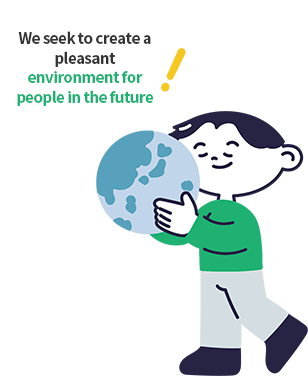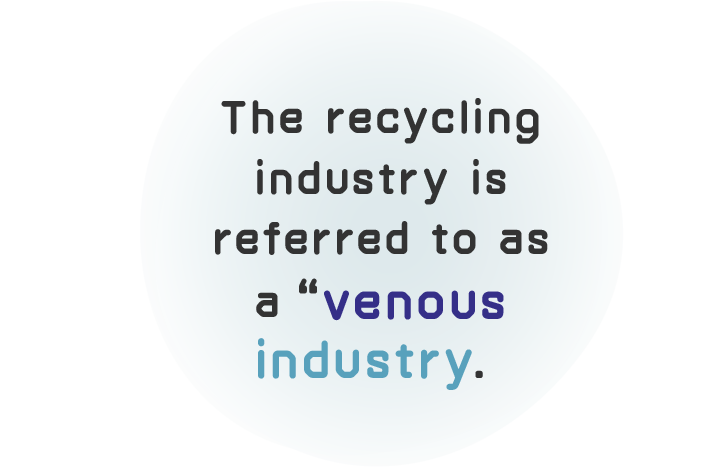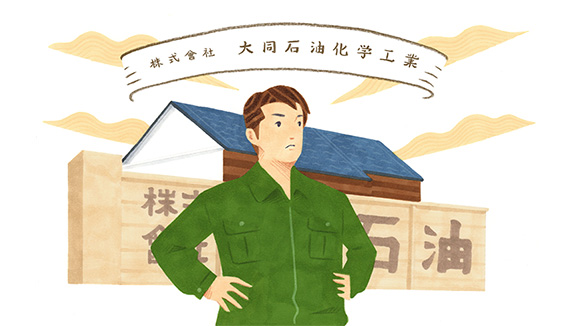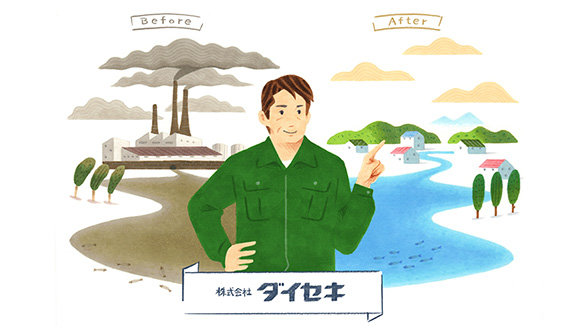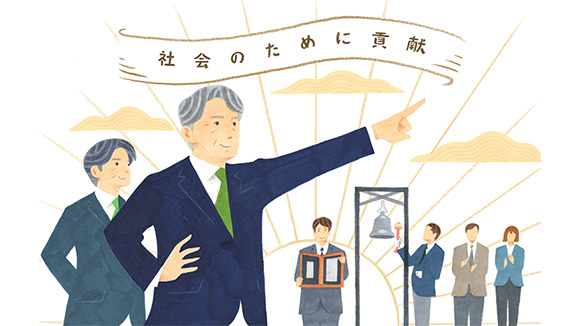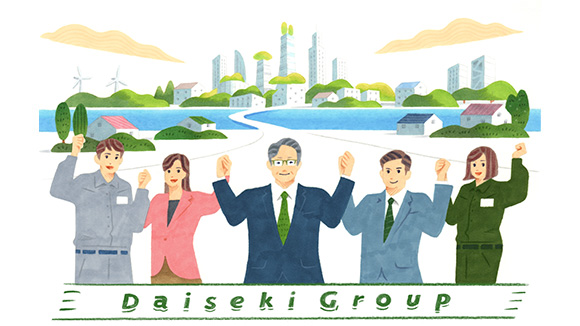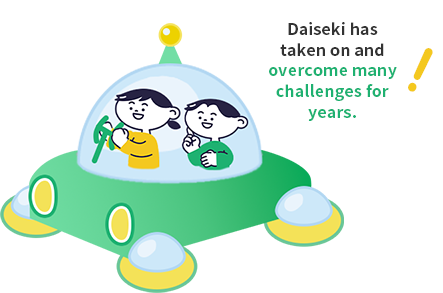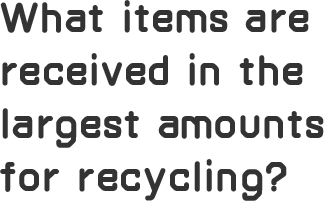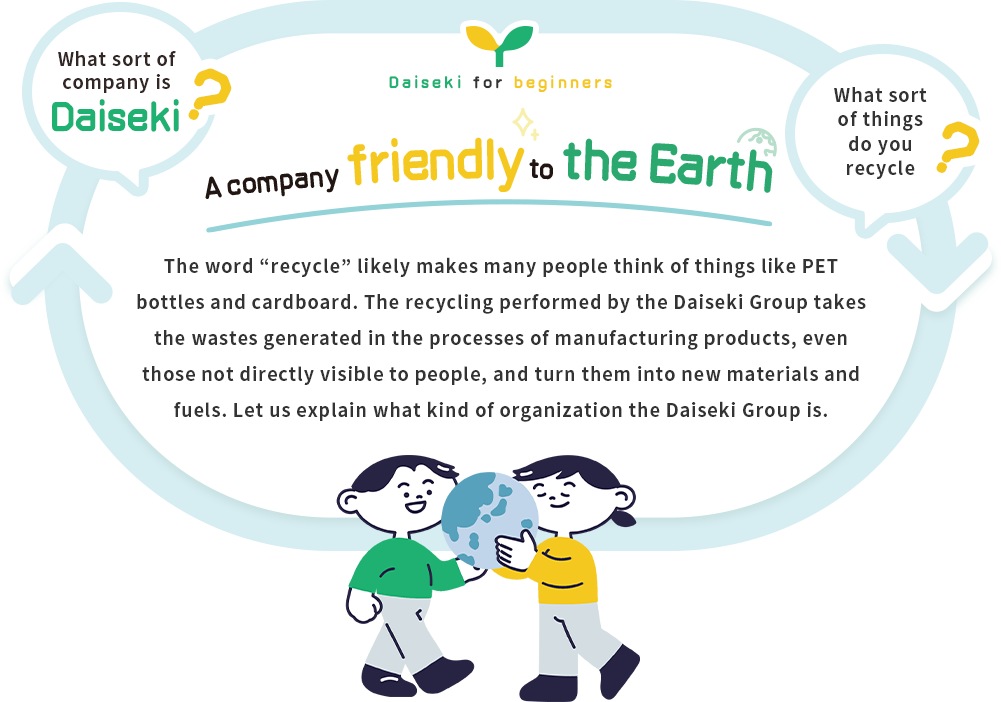
Our bodies have arteries that carry blood from the heart throughout the body, and veins that work to return blood to the heart.
Therefore, manufacturers that make the products we use in daily life are called "artery industries."
However, if wastes generated in the process of manufacturing the products were sent back to the "heart" as they are, that would be a major problem.
In society, we play a role like veins in the human body, recycling wastes into fuels and materials and returning them to the manufacturers. Therefore, our industry is called a "venous industry".
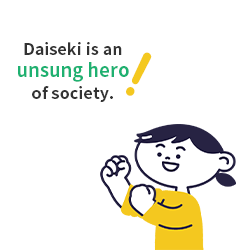
Daiseki was incorporated in 1958
and immediately began working in the recycling business,
before the word "recycle" had become commonplace.
Since first obtaining our license for industrial waste treatment business in 1972,
we have contributed to the construction of a recycling-oriented society
under the mission of "making the best use of limited resources."
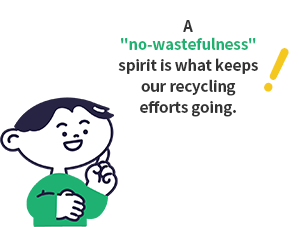
We want to contribute to the conservation of the global environment through our recycling business.
To achieve further growth, Daiseki became the first specialist industrial waste treatment company to be listed on the stock exchange!
For over 20 years since our listing in 1999, we have continually grown our business performance. (Our consolidated net sales have more than quintupled between FY2001 and FY2025.)
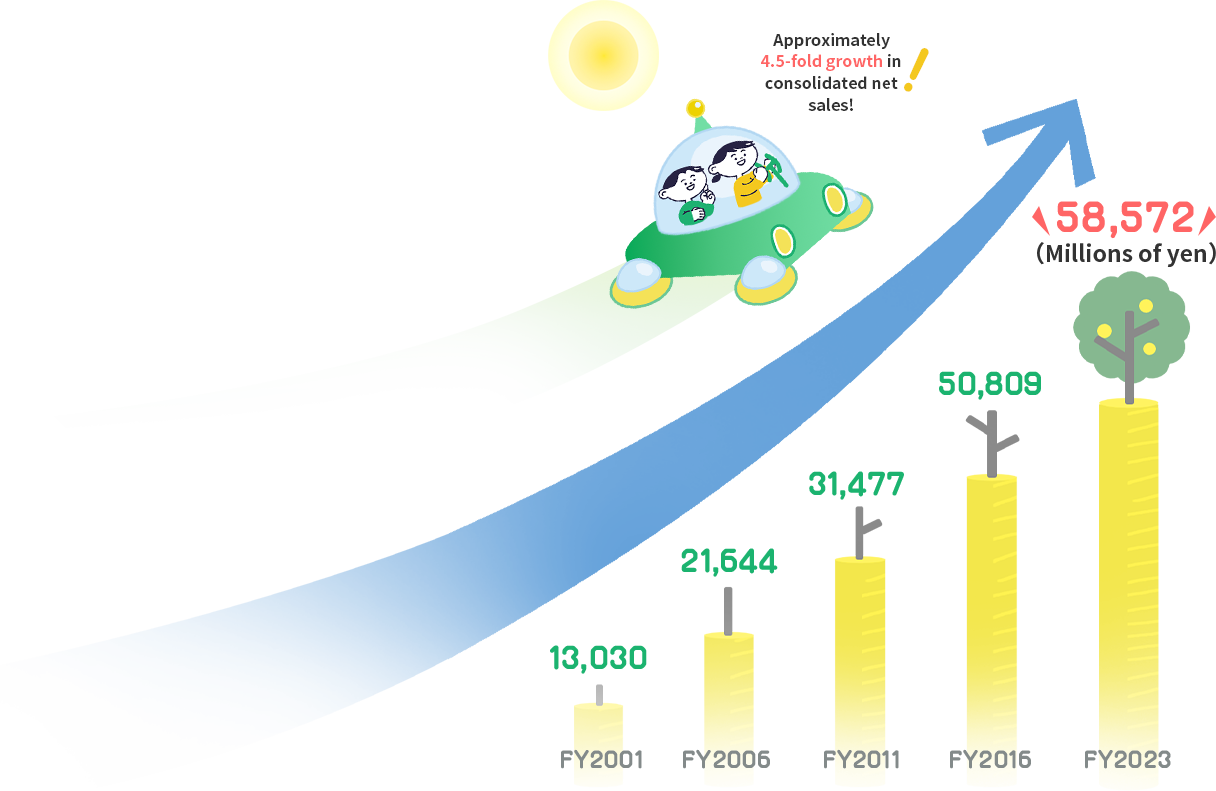
The Daiseki Group recycles items that are essential to
manufacturing industries and the conservation of the global environment,
such as waste oil, wastewater, sludge, contaminated soil, plasterboard, lead,
residues from oil tank cleaning, and various other wastes and materials.
-
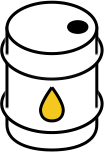
Waste oil, wastewater, and sludge recycling segment
-

Contaminated soil and plasterboard recycling segment
-

Lead recycling segment
-

Oil tank cleaning segment
Based on the amount of wastes received for recycling, liquids including waste oil, waste acid, and waste alkali are the largest in volume, followed by contaminated soil, sludge, and used lead batteries.
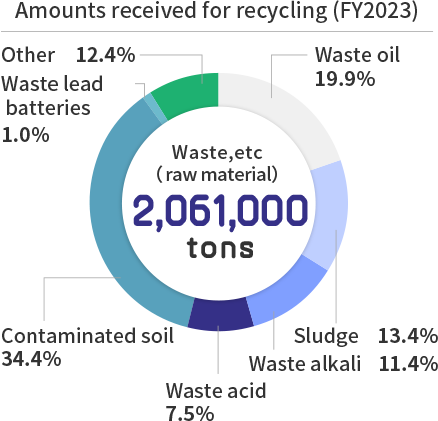

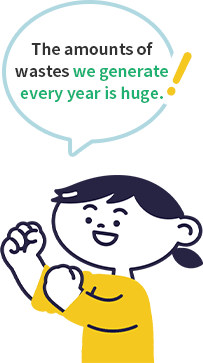
Waste oil recycling
Contributing to thermal recycling Contributing to reducing the consumption of limited fossil fuels
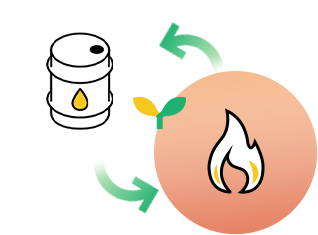
In the waste oil segment, we recycle waste oil and solvents discharged from factories and dealers into recycled fuels. Recycled fuels are used as alternatives to fossil fuels such as coal and heavy oil.
Wastewater recycling
A top-ranking market share in Japan An expert in the recycling of difficult-to-treat wastewater
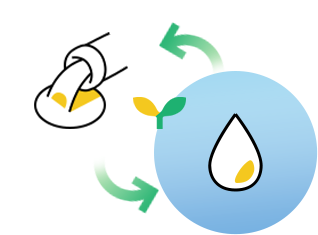
In the wastewater segment, we perform "compound treatment", where multiple types of wastewater are combined to facilitate treatment without the use of additional chemicals, thus eliminating wasteful by-products and achieving a higher recycling rate.
Sludge recycling
Turning wastes into resources Recycling sludge into cement material
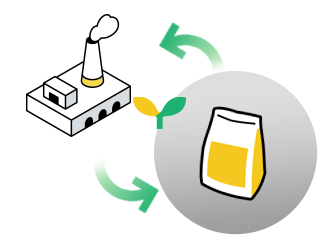
In the sludge segment, we mainly recycle sludge discharged from factories into cement materials. This recycled sludge is used by cement suppliers as a substitute for limestone and other cement ingredients.


In what ways is Daiseki earth-friendly?
- ・By purifying hazardous wastes, we contribute to protection of the global environment and biodiversity
- ・Through our high recycling rate, we help prevent the depletion of limited natural resources
- ・Through fuels that reuse inputs such as waste oil, we contribute to the reduction of fossil fuel consumption
- ・Through recycling and treatment not based on combustion, we help achieve a carbon-neutral society
Contaminated soil and construction-related waste recycling
Fast centralized processing by a single company Recycling contaminated soil and construction-related waste into cement materials, etc.
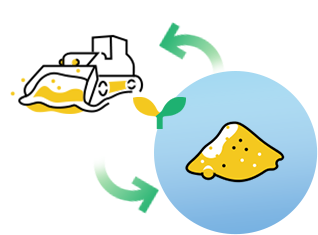
We recycle contaminated soil and construction-related waste generated in construction work into cement materials and more.
Biodiesel recycling
Contributing to carbon neutrality Recycling waste cooking oils into biodiesel
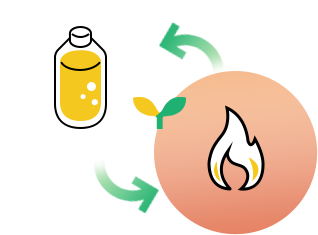
By recycling waste cooking oils into biodiesel fuel usable as a substitute for petrodiesel, we contribute to carbon neutrality.
Plasterboard recycling
Top-ranking shares in Japan and overseas Plasterboard recycling

We collect plasterboard from demolition sites, separate its components, and recycle it into materials to make plasterboard and recycled paper.

In what ways is Daiseki earth-friendly?
- ・By purifying contaminated soil and construction-related waste, we contribute to the protection of the global environment and biodiversity
- ・By recycling waste cooking oil into biodiesel fuel, we contribute to carbon neutrality
- ・By recycling materials into cement and plasterboard ingredients, we help prevent the depletion of natural resources
Lead recycling
The only gas-fueled melting furnace in Japan Very safe and also helps reduce CO2 emissions
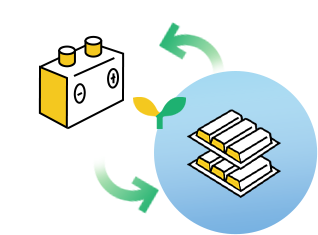
We collect used lead batteries and separate, dissolve, and smelt their components to turn them into lead ingots. These lead ingots are used by battery manufacturers.
Tank cleaning
Top-ranking shares in Japan and overseas Safe, unmanned tank cleaning work
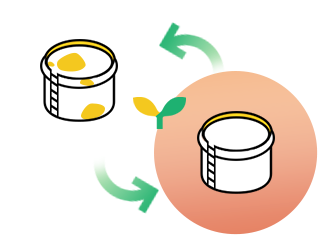
To recycle crude oil sludge accumulated in large-scale crude oil tanks, we employ an advanced method called the COW method to discharge and collect the sludge safely in a short time frame, which is performed by a small number of workers who do not enter the tanks.

In what ways is Daiseki earth-friendly?
- ・Through lead recycling, we contribute to the prevention of environmental pollution and the utilization of lead as a useful resource
- ・We carry out tank cleaning using environmentally friendly and safe work methods.
Daiseki engages in its recycling business through a network of seven corporate sites and eight affiliated companies nationwide. In the event of a disaster, we mobilize our people and resources to the afflicted area at the request of the national or local government.
Daiseki has a robust system for maintaining a good environment for communities and for the Earth.
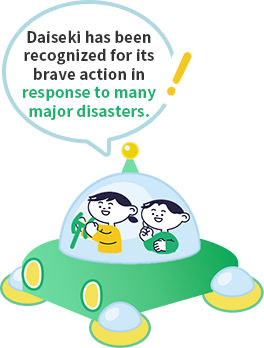
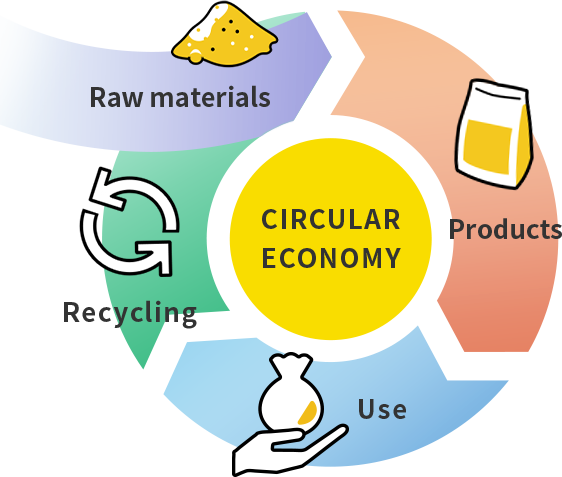
Toward the achievement of a circular economy-oriented society
Further pursuing our no-wastefulness spirit
We do not only recycle resources and turn them into products, but also recycle any by-product that may be generated in the process.
As an "environment-creator", the Daiseki Group aims to realize a recycling-oriented society.
